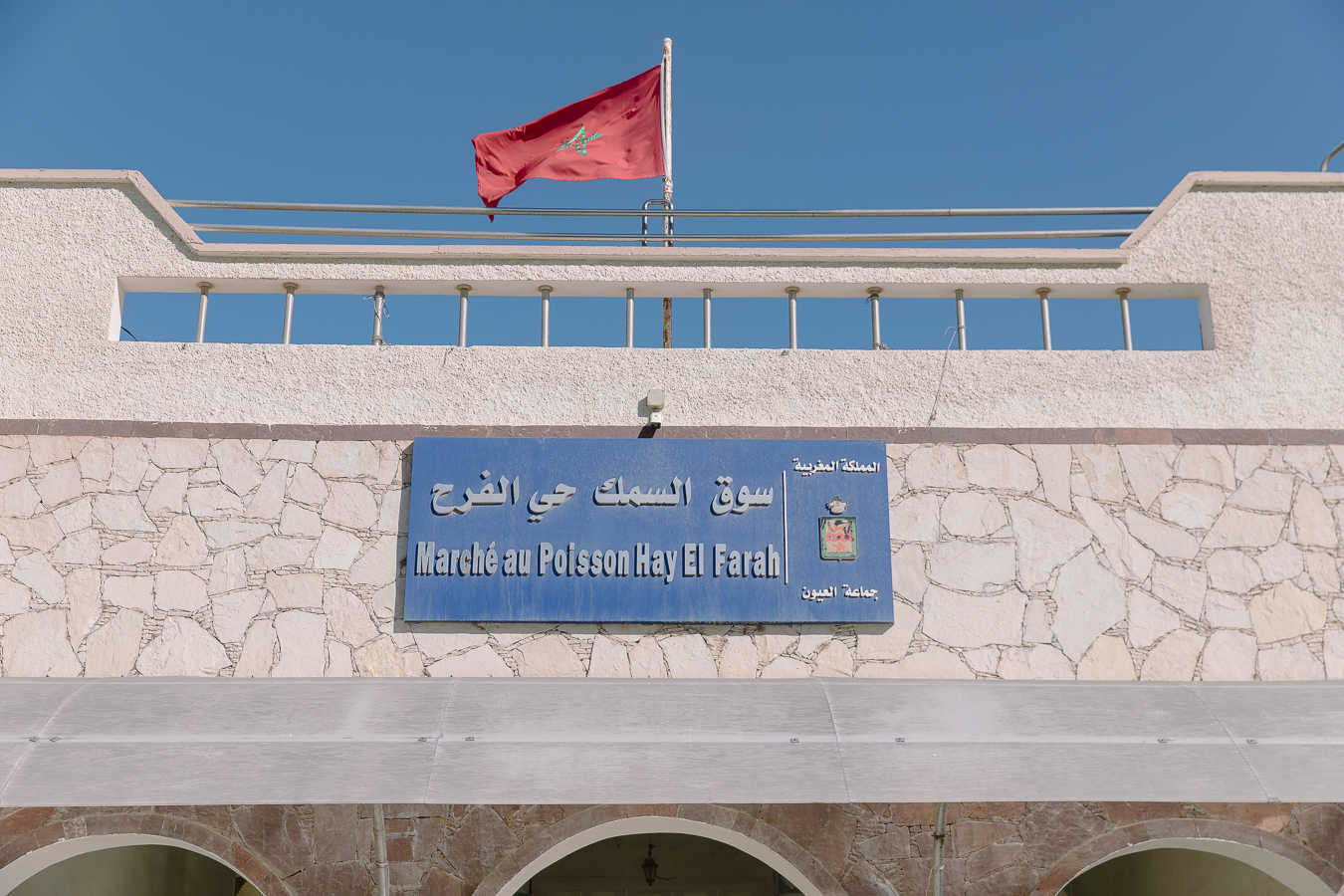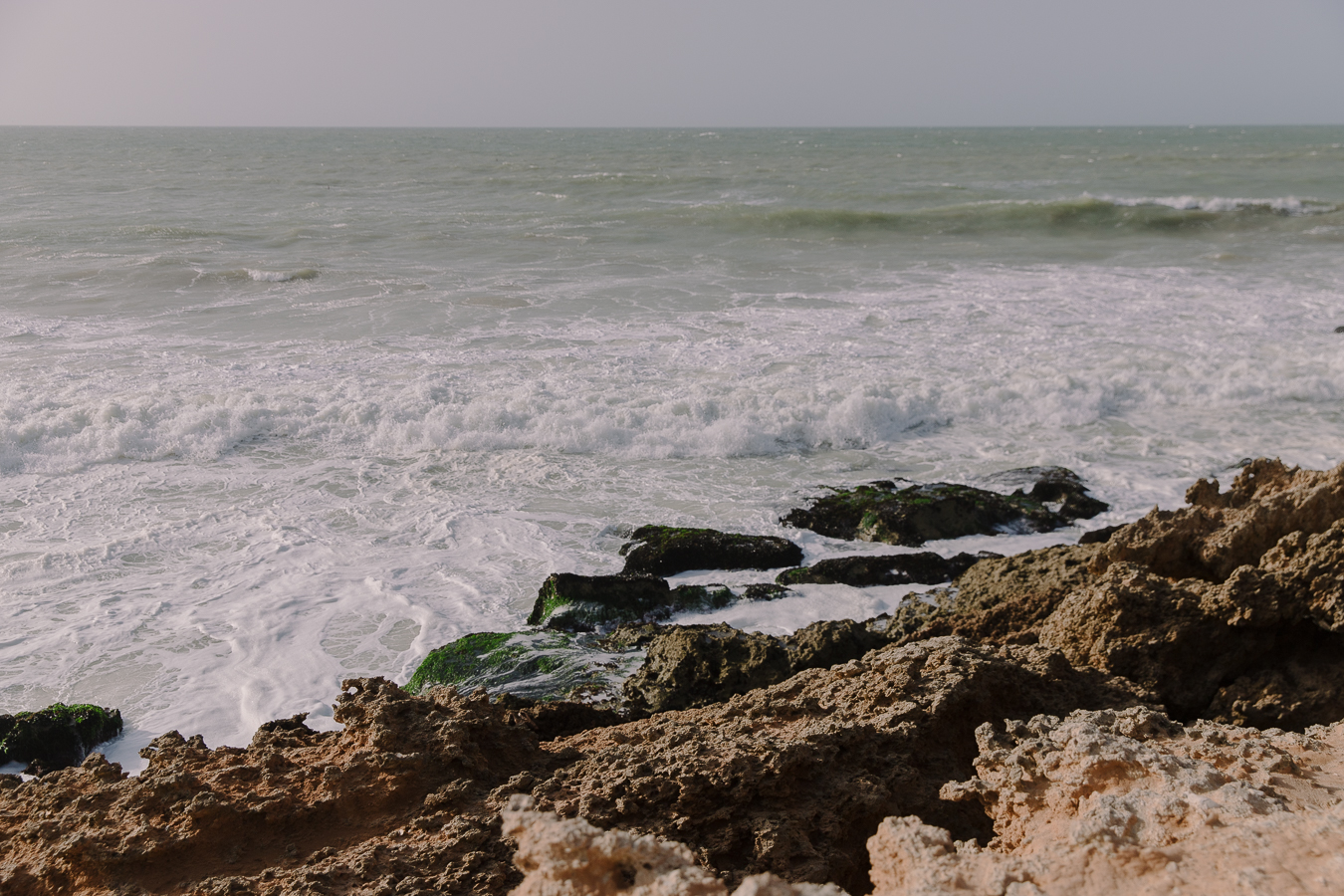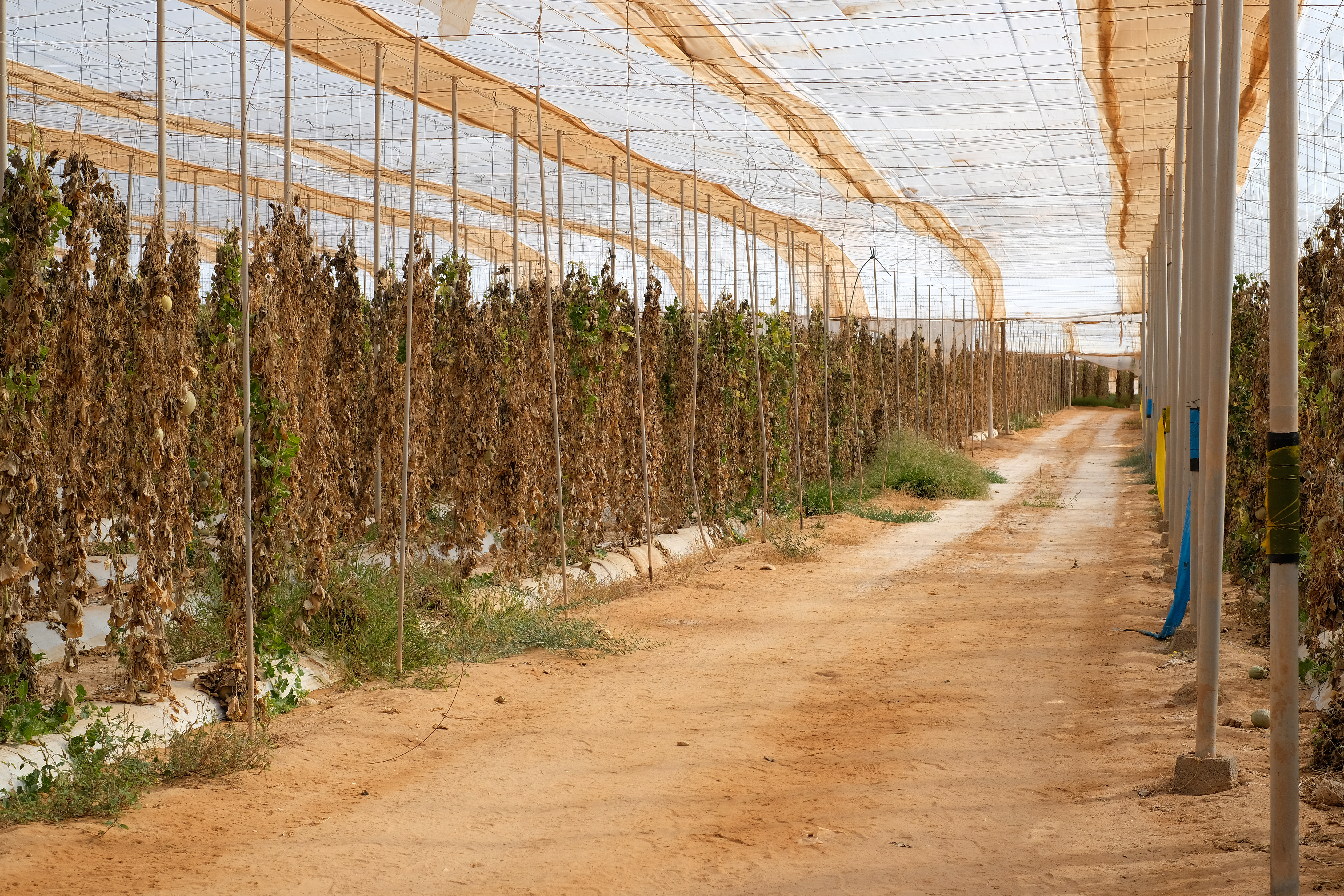
A German certification scheme for responsible farming refers to Moroccan settler agriculture on occupied land as “responsible”.
Illustration photo: Tomato plantation in Dakhla, not among the ones mentioned in this article.
GLOBALG.A.P. – a private-sector body that sets voluntary global standards for agricultural certification – classifies Moroccan farming in occupied Western Sahara as “responsible”.
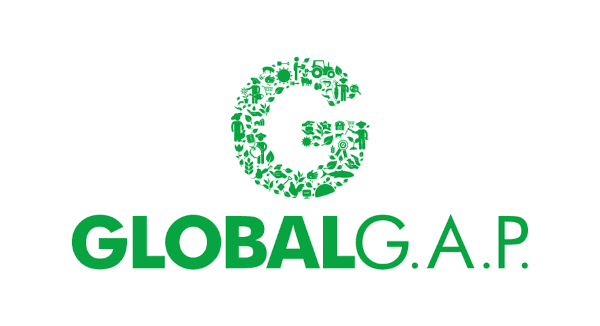
A handful of Moroccan companies operating in Western Sahara appear in the GLOBALG.A.P. certification registry. Their farms are situated on territory that was forcefully invaded by Morocco in 1979, in defiance of international law and in spite of United Nations condemnation. The Saharawi population, most of them living near the coast, largely fled the territory, and many were later replaced by settlers from Morocco.
Many of these settlers now are employed by agricultural companies. These companies abide by the legal frameworks imposed by the occupying authorities - and operate under permits issued by Rabat. As a result, they have been able to obtain certificates of “Good Agricultural Practices” (G.A.P.), and the companies operating on occupied land can promote themselves as “responsible”.
There are three key problems with issuing GLOBALG.A.P. certificates of “responsible” farming to companies operating in occupied Western Sahara:
- Legitimizing occupation through certification. The GLOBALG.A.P. label lends an aura of legitimacy to Moroccan companies operating in the occupied territory by certifying them as “responsible”—without acknowledging that their activities take place on land under illegal occupation. These farming operations align with Morocco’s broader strategy of consolidating its annexation of Western Sahara and integrating the territory into its national framework. Any of Morocco’s business sectors in Western Sahara – including agriculture – is deeply political. Since the time that the EU and Morocco started the first talks over a trade agreement for agricultural products to be illegally implemented in Western Sahara, the Moroccan government has strategically sought to increase the agricultural production in the occupied territory. This is done primarily through large plantation farms owned by Moroccan royal family, Moroccan politicians and French-Moroccan interests. Also some small scale farming initiatives have emerged. Thousands or Moroccan settlers has in this way been able to settle in the territory – in strict violation of the Geneva Conventions. The biggest project of them all is about to take place soon, whereby thousands of settlers may be attracted through the territory, from a project led by the French company Engie.
- Undermining Saharawi rights and consent. The GLOBALG.A.P. label can be used by companies involved in the production and export of goods from occupied Western Sahara in ways that disregard the right to self-determination and the interests of the Saharawi people. This contributes to the continued marginalization and dispossession of the legitimate right-holders to the territory. The majority of the people who originally are from the coastal area around the farmlands of the Dakhla peninsula, are displaced to refugee camps abroad. They are the ones with the right to decide over matters relating to Western Sahara – not the Moroccan government.
- Misleading EU consumers. GLOBALG.A.P. certificates listed in the scheme’s official directory inaccurately identify farms in Western Sahara as being located in Morocco. This misrepresentation can mislead European consumers, who may assume that “good agricultural practices” imply that the farming is not taking place on illegally occupied land. (See a misleading marketing example here).
Morocco’s agroindustry thumbed down by the EU’s highest court
The EU Court of Justice has gone thoroughly through the legal aspect of the trade in agricultural and fisheries products from Western Sahara. In the latest rulings of 4 October 2024 it established, more clear than in any of its earlier rulings, that the right to self-determination is with the Saharawi people, not the wider population, who today mostly consist of Moroccans.
The reason why this distinction is central in the case of GLOBALG.A.P. is that the certification standard’s raison d’être is to benefit so-called “farming communities”.
“[T]here is a difference in that regard between the concept of the ‘population’ of a non-self-governing territory and of the ‘people’ of that territory. The latter refers to a political unit which holds the right to self-determination, whereas the concept of ‘population’ refers to the inhabitants of a territory”, the CJEU ruled in §129.
The Court established in §128 that “a majority of the population of Western Sahara is not part of the people holding the right to self-determination, namely the people of Western Sahara. That people, which for the most part has been displaced, is the sole holder of the right to self-determination with regard to the territory of Western Sahara. The right to self-determination belongs to that people, and not to the population of that territory in general, of which - according to the estimates provided by the Commission at the hearing before the Court of Justice - only 25% is of Sahrawi origin”.
It is the people, not the population, who are to benefit for such trade for it to be in line with international law, according to the court. Morocco has massively moved in settlers illegally to Western Sahara, in violation of the Geneva Conventions.
The EU institutions’ legal reasoning throughout the years of litigation—which they consistently lost—was based on the premise that, since Morocco exercises de facto control over Western Sahara and its adjacent waters, and allegedly applies its jurisdiction there, it was therefore the appropriate party to conclude agreements with. This logic sidestepped entirely the option of respecting international law by not entering into agreements with an occupying power, refraining from exploiting resources in an occupied territory, and engaging with the legitimate representatives of the Saharawi people—as if those considerations were never even on the table.
This EU line of reasoning was shot down by the court. The fact that Morocco is present in the territory, does not give them the sovereignty or authority to enter into such agreements, the court ruled.
This legal development was beneficial to European farmers, such as the farmers’ union in Spain and France. The French union was behind one of the Western Sahara court cases, whereas the Spanish have worked to follow it up, lastly with a complaint to one of GLOBALG.A.P.’s members to Spanish consumer authorities in July 2025. The Spanish farmers’ complaint was made in in partnership with the Spanish consumer rights watchdog Spanish Federation of Consumers and Users (CECU).
Responsibility à la GLOBALG.A.P.
So in this context of the illegal occupation of Western Sahara – in a territory ranked among the less politically free in the entire world, how does GLOBALG.A.P. relate to “responsible farming”?
GLOBALG.A.P. – which expresses a vision of “a world in which farms are recognized for their efforts to continuously produce enough safe food while safeguarding our environment and the welfare of farming communities” – did not respond to the questions regarding what it means by a “farming community” in the context of Western Sahara. This is central. It goes straight into the core of the latest EU ruling. Does a “farming community” in GLOBALG.A.P.’s universe refer to the “population” – in the sense that it considers the Moroccan settlers (who most likely consist up to a near totality of the farming community) as part of the farming community? Or does GLOBALG.A.P. actually assess farming community as the Saharawis – who in fact are not traditionally farmers?
The Court invalidated the EU-Moroccan trade agreements largely based on the EU’s failure to distinguish these two demographic units.
In the case that GLOBALG.A.P. means the “local population” near the plantation, it did not respond to whether such an approach may mean that its otherwise well-meant vision in the case of Western Sahara is ignoring the rights of the Saharawi people.
GLOBALG.A.P. underlined in letters to WSRW on 27 December 2024 and on 18 June 2025 that certified producers are required to comply with “applicable laws for the production process”. WSRW asked GLOBALG.A.P. on 30 November 2024 and on 1 January 2025 which country’s laws that it believes apply to the territory, and why. GLOBALG.A.P. did not respond to how it would be possible to interpret the Moroccan government’s regulations, laws, checks or permits to be relevant in Western Sahara, taking into account that the international courts do not regard Morocco as having sovereignty or an administering power capacity over Western Sahara, and as such do not consider Western Sahara to be part of Morocco. It commented, instead that “an assessment based on established Moroccan law is generally possible if Moroccan law was applicable”. It is still not clear why GLOBALG.A.P. believes Moroccan law is applicable for the assessment of Moroccan farming outside of Morocco’s international borders.
It noted to WSRW that it had no other option than to use the Moroccan law, as “due to the missing binding legal framework in Western Sahara, it is impossible for GLOBALG.A.P. to issue certificates for products originating from Western Sahara based on any local law”.
GLOBALG.A.P. did not respond to questions about whether the issuance of certificates to Moroccan companies operating in occupied Western Sahara has been consented to by the Saharawi people, or whether the right to self-determination is among the human rights that certified companies are expected to respect under the scheme’s standards. Instead, the organisation referred broadly to “the general legal, political, and administrative complexities in the region.” It remains unclear what is meant by “region” - a vague term not used by the United Nations or international courts in reference to Western Sahara, but frequently employed by the Moroccan government to blur the legal status of the non-self-governing territory.
“We certify based on very strict and rigid standards and apply the same standards irrespective of the country or other external factors. Taking our efforts to contribute to the welfare of the farming community so out of context to allege that we are ‘contributing to the ongoing injustice against the Saharawi people’ is neither true nor legitimate.” GLOBALG.A.P. wrote to WSRW.
GLOBALG.A.P. did not explain why it applies the same standards to Western Sahara as it does to farming within internationally recognized sovereign states. Morocco has neither sovereignty over Western Sahara nor any international mandate to administer the territory. Unlike other occupying powers that acknowledge their status - thereby triggering specific obligations and rights under international law - Morocco does not recognize itself as an occupying power. To WSRW’s knowledge, Western Sahara is the only case globally where GLOBALG.A.P. has issued certifications on occupied land. WSRW has found no evidence of GLOBALG.A.P. certificates for alleged “responsible” farming by Israeli settlers in occupied Palestinian territory, or by Russian entities in occupied parts of Ukraine.
GLOBALG.A.P. issued statement
After being alerted about the WSRW’s concerns in late 2024, GLOBALG.A.P. conducted an internal investigation, it told WSRW.
“This resulted in a statement on this matter sent to all our Certification Bodies and published on our Website”, GLOBALG.A.P. told. The statement, published on GLOBALG.A.P.’s website 2 April 2025, reads:
“2.7 Origin of products grown in Western Sahara (New)Our attention was recently brought to GLOBALG.A.P. certifications in Western Sahara. We would like to share the results of our evaluation related to identifying the origin of products grown in the area. According to Article 73 of the United Nations Charter, Western Sahara remains classified as a "non-self-governing territory", and recent European Court of Justice (ECJ) rulings have confirmed that trade agreements between the European Union and Morocco do not extend to Western Sahara without the explicit consent of the Sahrawi people. The ECJ has also ruled that products originating from Western Sahara must be explicitly labeled as such and must not be presented as Moroccan products.”
The public statement is a relatively good representation of the particular court rulings and is welcome in view of the failure of the sector to address the issue. A clear omission in the statement is the court’s repeated insistence on Western Sahara not being part of Morocco at all, as the two territories are “separate and distinct”. This constitutes the core of the rulings.
The CJEU granted a twelve-month transition period during which the extension of the EU-Moroccan trade agreement to products originating in Western Sahara will remain in effect.
“Once the transition phase expires, a stable local legal framework is required to be able to continue the GLOBALG.A.P. certification in Western Sahara”, GLOBALG.A.P. stated. “Until then, GLOBALG.A.P.'s instruction to the certification bodies remains in place”, it stated.
However, the CJEU does not suggest that a “stable local legal framework” is a requirement for the Moroccan farming industry to operate in Western Sahara. On the contrary, the Court’s rulings affirm that Morocco has no legal mandate to act on behalf of the territory. What is required for the continuation of trade under EU law is not an administrative framework imposed by Morocco, but rather the consent of the people of Western Sahara. That consent has not been granted - to the certified companies operating on the ground, to the certifying bodies conducting audits there, or to GLOBALG.A.P. itself.
“As a scheme owner, the overarching goal of GLOBALG.A.P. is to enable producers around the world to meet the standards of good agricultural practices and responsible farming. This requires compliance with the GLOBALG.A.P. standards and applicable laws for the production process”, it wrote.
All GLOBALG.A.P.'s Western Sahara certificates contain grave errors
The paradox in GLOBALG.A.P.’s current practice is that, while the organisation has issued a reasonably sound statement on the recent CJEU rulings, it appears elsewhere to disregard the core legal conclusions on which those rulings are based - specifically, the recognition of Western Sahara as a “separate and distinct” territory and the right to self-determination of the Saharawi people. This disconnect may stem from the critical omission in the communication GLOBALG.A.P. shared with its partners: failing to acknowledge the CJEU’s unequivocal conclusion that Western Sahara is not part of Morocco.
As a result, GLOBALG.A.P. continues to certify companies under the wrong legal regime, permitting its public directory to contain geographically incorrect information.
“There is no ‘paradox’ in the GLOBALG.A.P.‘s practice“, it states. “GLOBALG.A.P. promotes good agricultural practice and responsible farming. This includes compliance with applicable laws for the production process”, it wrote.
In a world where Moroccan laws are applicable in Western Sahara, that may make sense, however the international courts disagree with GLOBALG.A.P. on that point.
All GLOBALG.A.P. certificates and directory filings for producers located in the territory of Western Sahara suggest that the locations of the establishments are in “Morocco”. This is factually wrong. In other words, any European consumer who checks up the GLOBALG.A.P. certificate, the information channels of the certified companies, or the GLOBALG.A.P. registry itself, will for every case receive incorrect information about the home country of the establishment.
GLOBALG.A.P. in other contexts makes excellent maps that are perfectly in line with the UN position.
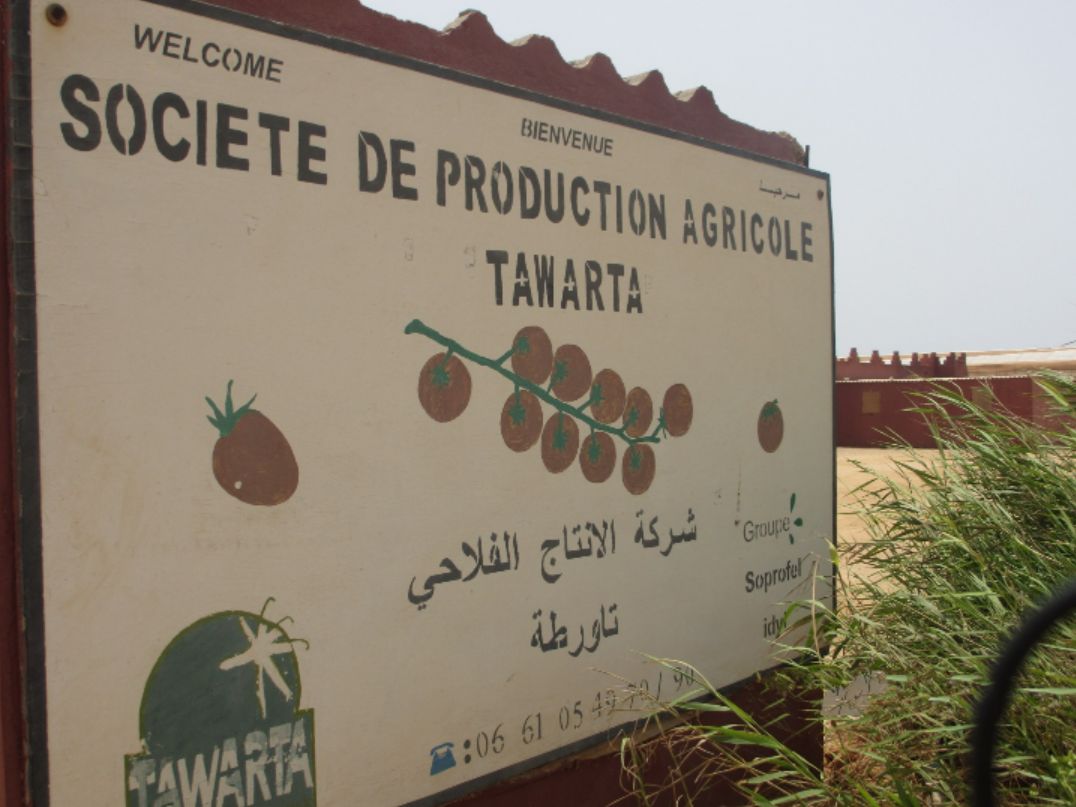
WSRW inquired why Moroccan companies in occupied Western Sahara are filed in the GLOBALG.A.P. certification database as in “Morocco”. These include Mijk Domaine Agricole, Sigma Dak, Sté Production Agricole Tawarta, FMI Nabih Acricole, BD Trading and Tazyazt Agricole.
GLOBALG.A.P.’s answer reflects an approach whereby it seemingly views it as no other manner that it has to certify Moroccan companies on occupied land, as if avoiding certification of agriculture in the occupied territory altogether is not an option.
It responded that “due to the missing binding legal framework in Western Sahara, it is impossible for GLOBALG.A.P. to issue certificates for products originating from Western Sahara based on any local law” and that “This fact may lead to unintentional misrepresentations of Moroccan companies operating in the territory of Western Sahara. […] Please note that GLOBALG.A.P.‘s approach is guided by the practical realities of the current legal and administrative situation. The lack of a binding legal framework and established infrastructure makes it impossible to issue certificates for products originating from Western Sahara. In contrast, Morocco has a legal framework that allows for the certification process to be carried out. The unintentional misrepresentations resulting from this fact do not mean GLOBALG.A.P. are any less committed to upholding International Law and Human Rights. On the contrary, these principles remain our highest priority and are at the core of our mission.”, it wrote to WSRW.
Certified wrong after publishing position
The geographical misrepresentation persisted in the most recent GLOBALG.A.P. certificate issued to BD Trading on 23 May 2025 - six weeks after GLOBALG.A.P. published its statement acknowledging the EU Court rulings and the requirement of Saharawi consent. The continued certification indicates that the absence of such consent has no apparent consequences for producers, auditors, or GLOBALG.A.P. itself. As of 19 June 2025, BD Trading’s production sites are still inaccurately presented on the website of its French partner, Groupe Anima: groupe-anima.com. [or download]
GLOBALG.A.P. points out that the EU Court granted a one-year transition period before the annulled trade agreement fully expires. However, GLOBALG.A.P. certificates issued to Moroccan companies operating in Western Sahara after the Court’s rulings remain valid well beyond the end of that transition period.
According to the most recent certificate issued to BD Trading, the production at this establishment fulfills the requirements of a so-called GRASP (GLOBALG.A.P. Risk Assessment on Social Practice). But does it, really? GLOBALG.A.P. confirmed to WSRW that “to date, no national interpretation guideline for Western Sahara exists”. It is unclear to WSRW how it can be technically possible to obtain a GRASP for a territory for which no applicable national guideline exists – particularly when that territory is, under international law and court rulings “separate and distinct” from Morocco.
WSRW asked GLOBALG.A.P. whether it is of the opinion that the Moroccan GRASP is applicable to the territory Western Sahara, but did not obtain a response. The GRASP General Rules v1.3-1-I establish that “In cases where a country does not have a GRASP Interpretation Guideline, the applicants (e.g. supplier, retailer, Certification Body) that are asking for the GRASP assessments need to hand in a project plan for the development of such interpretation guideline to the Secretariat”. No such plan has seemingly been submitted. GLOBALG.A.P. did also not respond to how the GRASP General Rules v1.3-1-i can be adhered to, taking into account that a World Bank dataset on Western Sahara which the GRASP is supposed to be understood from, is seemingly nonexistent.
“Community member” of GLOBALG.A.P.
With reference to the French-Moroccan agriculture company Azura’s being a “community member” of GLOBALG.A.P., WSRW asked what expectations or duties follow from such membership, in terms of legal compliance, human rights, transparency, ethics etc. GLOBALG.A.P. “responded that it welcomes all members dedicated to responsible farming practices”. It remains unclear to WSRW how GLOBALG.A.P. has determined that Azura engages in responsible farming practices. Azura - the largest agricultural producer operating in the occupied territory - actively promotes its GLOBALG.A.P. membership in public communications.
For several years, German fish feed producer KMP – the biggest importer of fish meal from occupied Western Sahara into Europe – claimed on its website to be a “community member” of GLOBALG.A.P., despite not being listed as such in the official GLOBALG.A.P registry. On 1 January 2025, WSRW highlighted this inconsistency to GLOBALG.A.P. At one point between 1 January (when their website looked like this, and WSRW contacted GLOBALG.A.P. about it) and 18 February 2025), KMP’s reference to the GLOBALG.A.P membership was removed. KMP still holds a seat in the “focus group” tasked with developing the new GLOBALG.A.P. Compound Feed Manufacturing standard.
Other “Community members” of GLOBALG.A.P. include the certification schemes/initiatives Intertek SAI Global Assurance, NSF Certification LLC and Alliance for Water Stewardship, none of which respond to WSRW’s mails. These all take part in the certification of Moroccan companies on the occupied territory, and all issue certificates with false geographical information, suggesting that Western Sahara is part of Morocco.
One of GLOBALG.A.P.’s community members is selling products from the occupied territory, fraudulently labelling the products from “Morocco” in a range of shops, in disregard of the CJEU rulings and of the GLOBALG.A.P. statement on labelling of produce from the territory.
Regarding the fraudulent country-of-origin information used by certified (and thus allegedly “responsible”) companies operating in Western Sahara, GLOBALG.A.P. stated that it “rejects responsibility for the enforcement of wrong geographical indications of origin” by those certified entities.
GLOBALG.A.P. wrote to WSRW that it is “aware of the potential” of reputational risks it might face as all the certificate holders in Western Sahara are placed in the wrong country. “This is why GLOBALG.A.P. takes active steps such as the publication quoted above to address the issue”, it stated.
The company GLOBALG.A.P is owned by the German company Agraya GbmH, until June 2025 called FoodPLUS GmbH.
Other controversies
- Fish feed producer Skretting Turkey - which has informed that it uses fish meal from Western Sahara for its operations in Turkey - informs on its website (or here) that it is certified in accordance with the GLOBALG.A.P. General Rules, Compound Feed Manufacturing standard. “GLOBALG.A.P. immediately started investigating the case after being made aware of it by WSRW”, it informed to WSRW in June 2025.
- GLOBALG.A.P. did not respond as to whether the ethics, legal compliance, human rights approach or due diligence practices relating in a company’s supply chain is a requirement for certification. When asked, GLOBALG.A.P. wrote that it “recognizes the challenges” related to how certified establishments in Morocco proper (such as in Agadir, Tan Tan etc) or in Europe that source products or raw materials for the agriculture and fisheries industry from Western Sahara are to ensure legal compliance in the supply chain. It commented that “GLOBALG.A.P. is actively working with their partners to ensure compliance with applicable laws”. The problem then, is that the “applicable laws” that it refers to are the ones of the occupying power, an approach that then is not responding to the dilemma.
- Regarding GLOBALG.A.P. certified fish meal/oil exporters in Nouadhibou in Mauritania, GLOBALG.A.P. and its possible sourcing of fish raw materials from Western Sahara waters, GLOBALG.A.P. notes that it is taking steps to avoid that raw materials that are used at these certified factories are not originating from Western Sahara waters, transported by sea or by land.
- At the time of first writing to GLOBALG.A.P. in 2024, the Azura Group claimed to be certified by the initiative, even though it was not found in the GLOBALG.A.P. registry of certified companies. “In response to questions regarding the Azura Group’s claim that it carries a GLOBALG.A.P. certificate, GLOBALG.A.P. contacted Azura and requested the removal of all GLOBALG.A.P. related claims and logos, which Azura have complied with”, GLOBALG.A.P. wrote to WSRW in June 2025.
Since you're here....
WSRW’s work is being read and used more than ever. We work totally independently and to a large extent voluntarily. Our work takes time, dedication and diligence. But we do it because we believe it matters – and we hope you do too. We look for more monthly donors to support our work. If you'd like to contribute to our work – 3€, 5€, 8€ monthly… what you can spare – the future of WSRW would be much more secure. You can set up a monthly donation to WSRW quickly here.
New report: Certified occupation
International certification standards embellish Morocco’s controversial trade with fisheries and agricultural products in occupied Western Sahara, new report documents.
Certification giant SGS points fingers elsewhere
SGS blames everyone else for mistakes on MarinTrust certificates it had issued to Moroccan companies in occupied Western Sahara.
GMP+ does not check if “sustainable” fish is legally caught
The world’s largest certification scheme for “safe and sustainable animal feed” does not check whether its certified fish feed companies source from illegal fisheries in occupied Western Sahara, where catches violate the Saharawi people’s right to self-determination.
ASC withdraws from occupied Western Sahara
Certification scheme ends involvement with Azura Group and declares that no future certifications will be granted to companies in the occupied territory.


